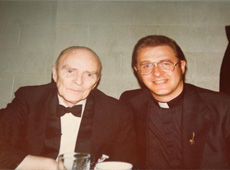Shane Harrison BBC NI-Dublin correspondent. December 28, 2018
State papers released in Dublin reveal “particularly intense” meetings between UK Prime Minister Margaret Thatcher and Taoiseach (Irish Prime Minister) Charles Haughey in 1988.
The meetings took place against the continuing background of violence.
At one, Mrs. Thatcher said An Garda Síochána ( Irish police) was not “the most highly professional force”.
Mr. Haughey replied: “You had Lisburn. You had Enniskillen. These are not failings of our making.”
On Remembrance Sunday in 1987, an IRA bomb exploded at the cenotaph in Enniskillen, killing 12 people. The following June, an IRA bomb killed six soldiers at a fun run in Lisburn.
“These are things which happen within Northern Ireland where your security forces operate,” said the Taoiseach.
“If the gardaí are not 100% effective, then neither are the RUC [Royal Ulster Constabulary, the police force in Northern Ireland from 1922 to 2001] 100% successful.”
It was a time when the Anglo-Irish agreement was still bedding in. While in opposition, Mr Haughey had opposed the 1985 treaty that aimed to help bring an end to the Troubles, but he worked with it when he became Taoiseach in 1987.
The meetings with Mrs. Thatcher took place on the margins of European Council gatherings
‘Your people come over to us. I wish they wouldn’t.’
In 1988, the SAS shot dead three unarmed IRA members “on active service” in Gibraltar.
At their funerals in Belfast’s Milltown cemetery, loyalist Michael Stone murdered three mourners.
Days later, two Army corporals inadvertently drove into the midst of a republican funeral. They were dragged from their car and killed by members of the IRA.
Successive Irish governments continued to push for reform to the administration of justice in Northern Ireland, including three-judge non-jury courts for paramilitary offenses, as was and is the case in the Republic of Ireland rather than single-judge Diplock courts in Northern Ireland.
The British kept asking for better cross-border security.
Image copyright Getty Images
Image caption A security checkpoint in Crossmaglen in 1985
Mrs. Thatcher repeatedly asked for pre-emptive intelligence and improved garda training in intelligence gathering.
Mr. Haughey replied that he had made her concerns known to those “at the highest level” and had made it clear that resources would not be a problem.
And the tension between the premiers continued when it came to the Common Travel Area.
“Your people come over to us. I wish they wouldn’t. They come looking for housing and services,” said the UK prime minister.
‘700 years’
At a European Council meeting in Brussels in February 1988, Mr. Haughey complained about:
• The non-publication of the Stalker Report into a security force alleged shoot-to-kill policy.
• The arising non-prosecution of senior RUC officers
• The courts’ decision not to hear an appeal from the so-called Birmingham Six
Image copyright PA
Image caption The so-called Birmingham Six walked from London’s Old Bailey on 14 March 1991, their innocence finally proved
They were finally released in 1991 after their murder convictions were quashed.
Mr. Haughey suggested to Mrs. Thatcher that public opinion in the Republic of Ireland was so affected by the issue that it might impact on the exchange of information.
Mrs. Thatcher wanted to know how long those emotions might last.
“700 years in our country,” was Mr. Haughey’s reply.

